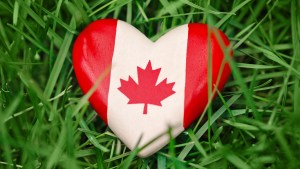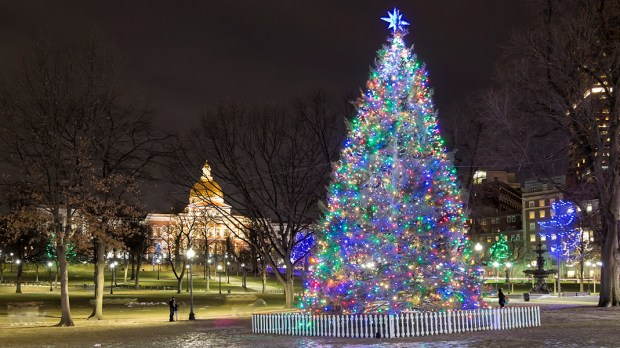On December 6, 1917, as local children busily prepared for Christmas and the city’s people went about their day, two ships collided in the Halifax harbor in Nova Scotia, Canada. At first, people were unaware of the danger that was about to come. However, as the Canadian Forces shared on their Twitter account, this historic event would affect the lives of thousands and create a bond between Nova Scotians and Bostonians for over a century.
Most people outside of Nova Scotia have not heard the story of the Halifax Explosion, but one of the beautiful things to rise from the ashes of that tragedy was the way communities and neighbors — right across national borders — came together.
One of the ships carried relief supplies being sent to Belgium to help in their war efforts, but the other ship had 2.9 kilotons of explosives. Passersby (including many children) ran to the harbor to witness what was going on, unaware that the black smoke coming from the ships was only a small sign of what was to come.
As the Twitter thread explains, one man, Vince Coleman, realized the ensuing danger. While encouraging others to flee the area, he stopped to send a message warning a train full of passengers, making their way to the harbor, of the impending danger. His act of courage saved the passengers but led to his own death.
The explosion killed 2,000 and wounded 9,000. As the Canadian Forces explains, the explosion and resulting tsunami led to the destruction of everything within 1.5 square miles. (To help visualize the event, even windows in houses 60 miles away were shattered, and the ship’s anchor landed 2.3 miles away from the explosion.) The explosion was even heard all the way south in Massachusetts. It was the largest man-made explosion to ever happen until the atomic bomb.
When a blizzard arrived the following day, 25,000 people were left without shelter. British sailors nearby joined the Canadian military to help. And a US naval ship, the USS Tacoma, headed straight to the area after they felt the blast from 52 miles away.
In Boston, Governor Samuel McCall heard limited details of the tragedy. Although he sent a telegram offering help, he quickly understood that he and his fellow Bostonians had to step in immediately. He sent a letter to this effect to the mayor of Halifax, explaining that Massachusetts would be sending their surgeons and nurses, and further help, even though they’d heard no further developments from the destroyed city. The letter apparently moved the mayor to tears.
When word reached Boston, details were scant.
— Canadian Forces in 🇺🇸 (@CAFinUS) November 29, 2020
Governor Samuel McCall offered assistance immediately via telegraph, but dispatched a train before receiving a response.
When an official in Halifax first read this letter from the Governor, he broke down in tears. pic.twitter.com/WQJgCuzYjp
The help extended beyond the medical professionals — Bostonians raised what would be $1.9 million today, within one hour. Further fundraising gathered a total of the equivalent of $15 million.
A train full of help was en route to Halifax, but nobody was prepared for what they would see. One woman, Elizabeth Fraser, discovered her pregnant aunt wandering the streets. Blinded by the explosion, she hadn’t realized that her six-year-old boy, whom she was dragging alongside her, had actually died.
Thanks to the aid of their Bostonian neighbors, many of whom stayed on to help rebuild the city and tend to the wounded, Halifax began a slow path of recovery. The evergreen tree sent each year to Boston Common from Nova Scotia is just one symbol of everlasting gratitude that the Nova Scotians wish to express to their neighbors.
Out of such a tragedy, neighbors did what they do best for each other in times of need: lend support and aid with no expectations of anything in return.
This tree from Nova Scotia is now in Boston Common.
— Canadian Forces in 🇺🇸 (@CAFinUS) November 29, 2020
The Nova Scotians send one every year.
Why? pic.twitter.com/T0iCbPoEh5

Read more:
10 Reasons to be thankful for our Canadian neighbors

